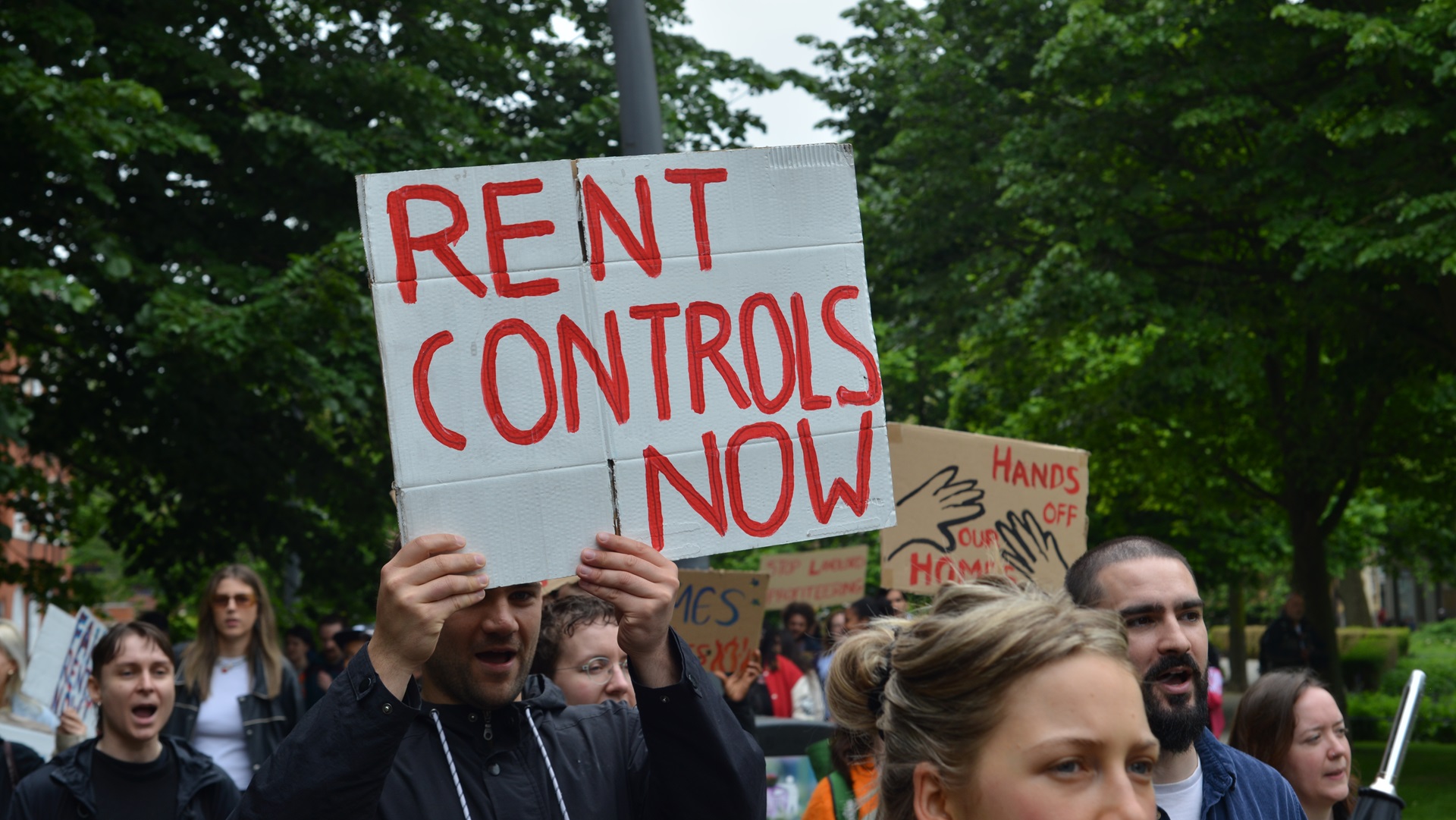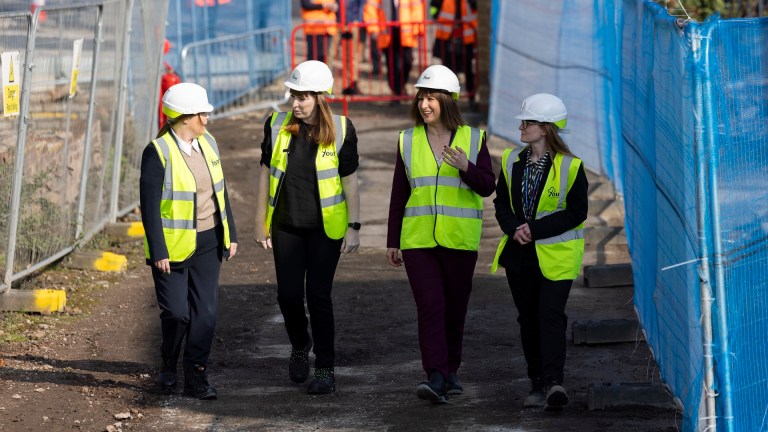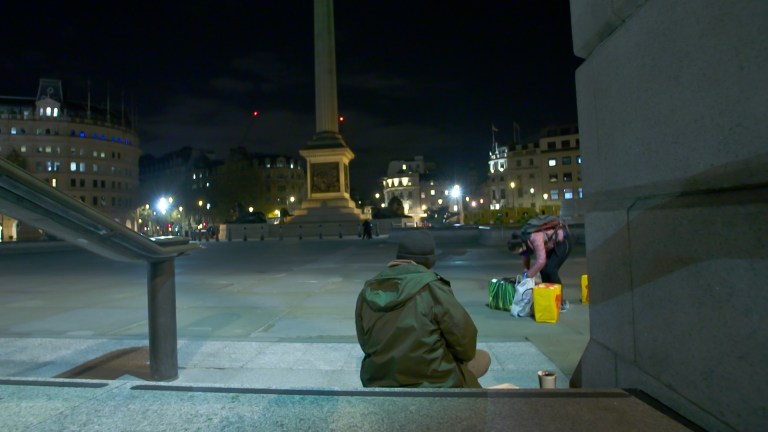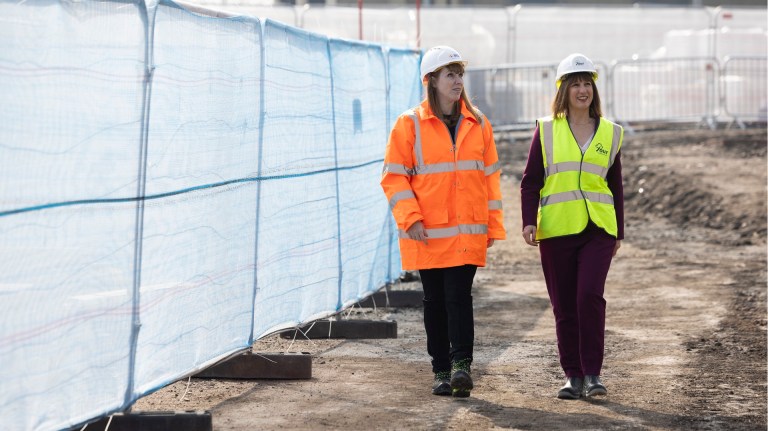Pro-renter groups Acorn and Generation Rent have criticised the research, arguing that intervention is needed to prevent rents soaring.
Ben Twomey, chief executive of Generation Rent, said: “A fair and common-sense approach to stop rents rising faster than our wages or inflation is not going to drive landlords into poverty and homelessness, but it would protect so many renters from that fate.”
Does the UK have rent controls?
Rent controls introduce limits to what a landlord can charge and can apply to either specific properties or across the private rented market. They are not currently in operation in the UK.
Rent controls were previously in operation in England until 1989. They were first introduced due to housing shortages during World War I and remained at least partially until Margaret Thatcher’s Conservative government deregulated the sector with the Housing Act 1988.
They have been in operation in some form in Scotland recently and the Scottish government has plans to introduce rent controls in the long-term. The SNP government limited rent increases and banned evictions between September 2022 and April 2024.
The Welsh government has also held a consultation on bringing in rent controls.
Advertising helps fund Big Issue’s mission to end poverty
There have been growing calls from rent pressure groups for them to be introduced to combat record-high rents.
The Office for National Statistics (ONS) revealed that average private rents in the UK increased by 8.4% in the 12 months up to August this year.
That means tenants are paying £100 more every month a year ago and rents are rising at a faster rate than inflation at 2.2% or wage growth including bonuses.
The most recent ONS statistics show average rents increased to £1,327 a month in England, £752 in Wales and £969 in Scotland in the year up to July 2024.
Rents are rising fastest in London – up 9.6% to an average price of £2,129, according to the ONS. That’s why London mayor Sadiq Khan has been calling for rent controls in recent years, though he has denied talks with the new government about introducing them.
Khan continues to support devolution in areas such as rent controls.
Advertising helps fund Big Issue’s mission to end poverty
One of the reasons why campaigners are calling for rent controls is a lack of affordable houses. Rightmove said in July that 120,000 new rental homes are needed to bring down rent growth to 2% in line with the Bank of England’s inflation target.
How do rent controls work?
Rent controls introduce limits to what a landlord can charge to rent a home.
Currently, a landlord can charge whatever they want for a property if they can find a tenant who will pay the price. The free market determines the cost and renters often face a shortage of options, driving up prices.
Rent controls can either be introduced centrally by a government or apply to specific neighbourhoods to prevent these rises.
Rent pressure zones, which have been used in Scotland and Ireland in recent years, can see local councils apply to ministers to introduce a rent cap in their local area.
In Scotland, local authorities must prove rents are rising too much to the detriment of tenants and housing pressures. The cap in Scotland would limit rent rises to consumer price index inflation plus 1% – identical to the cap on social rents in England.
Advertising helps fund Big Issue’s mission to end poverty
No rent pressure zones are currently in operation in Scotland despite a housing emergency being declared earlier this year.
What are the negatives of rent controls?
The IEA’s opposition to rent controls is largely based on the argument that it leads to higher rents for homes not subject to the limits.
The think tank, which described Truss’ mini-budget as a “boost-up budget”, said rent controls benefit existing tenants at a “significant cost” to broader society.
The introduction of rent controls could see less maintenance spending on properties, the construction of fewer new properties and exacerbate a housing shortage, according to Dr Konstantin A. Kholodilin, a senior researcher at the German Institute for Economic Research and the author of the IEA briefing.
The academic also found evidence that rent controls reduce residential mobility and lead to the misallocation of housing if people stay in rent control properties for too long.
It can also lead to tenants being left with no option but to become homeowners.
Advertising helps fund Big Issue’s mission to end poverty
“Rent control effectively reduces rents in the controlled sector, but does it a high price,” said Kholodilin. “Tenants occupying the rent-controlled dwellings benefit the most, at least in the short run, while newcomers lose from rent control. In the long run, rent control can undermine the rental sector forcing landlords to convert their dwellings and tenants to become homeowners.”
Meanwhile, the NRLA has warned landlords would sell properties if rent controls were introduced.
Research, compiled by the research consultancy Pegasus Insight, found landlords were two times more likely to have sold properties over the previous year than to have purchased rental homes.
The landlord lobby group said 8% of landlords surveyed had bought properties to rent out, compared with 17% who had sold.
Ben Beadle, chief executive of the National Residential Landlords Association, said: “Whichever way you look at it there are more renters looking for a place to live than there are homes available.
“Ultimately rent controls would be a disaster for tenants. All they would do is choke off supply further, undermining what little choice tenants currently have when looking for somewhere to live.
Advertising helps fund Big Issue’s mission to end poverty
“Housing is expensive because we don’t have enough of every type of property, be it for owner occupation, social rent or private rent. The only way to solve this crisis is to boost supply right across the board.”
Why are campaigners still calling for rent controls?
There has been a growing movement calling for rent controls to bring down record-high private rents.
Calls have intensified as tenants have faced a long wait for promised rent reforms through the Tories’ Renters Reform Bill and now Labour’s Renters’ Rights Bill.
Responding to the IEA paper, Generation Rent’s Twomey disagreed with the assertion that rent controls do more harm than good and said that they should be introduced to give renters on lower and middle incomes “breathing space”.
He also took issue with the think tank’s claims that the quality of homes will decline under rent controls.
Twomey said around a million privately rented homes currently don’t meet the decent homes standard and more than one in 10 private renters are living with potentially life-threatening hazards.
Advertising helps fund Big Issue’s mission to end poverty
The Labour government is planning to introduce a decent homes standard to the sector as well as extending Awaab’s Law rules that currently only apply to the social housing sector.
“Against the backdrop of rents in the UK still rising significantly faster than wages, the first finding of the IEA’s own research is that rent controls do protect renters from unaffordable rent rises where we live – across England this would mean 11 million renters better protected from poverty and homelessness,” said Twomey.
“Listed among the IEA’s apparent down-sides of rent control is ‘forcing…tenants to become homeowners’… Yes please! That’s what so many of us would want and are unable to do because of soaring rents.
“The briefing also mentions how rent controls could reduce ‘residential mobility’, which might be a problem in other countries but in England the typical renter spends less than 3 years in their home so more stability to put down roots would be a welcome change.
“Rent controls will not solve everything, and more affordable homes need to be built where people want to live, but renters on low and middle incomes need breathing space now.”
Meanwhile, Nick Ballard, head organiser at Acorn, said the UK should be looking to international examples where rent controls have been used successfully, citing Vienna.
Advertising helps fund Big Issue’s mission to end poverty
Two-thirds of the Austrian capital’s rental housing is covered by rent controls but that is backed up with a healthy supply of social housing.
The Big Issue’s Blueprint for Change has called on the new government to invest in affordable and social housing to tackle the housing crisis in the long run.
“It’s hard to take this so-called “research” seriously when it’s produced by a landlord lobby organisation like the NRLA, backed by the IEA—a right-wing think tank notorious for supporting Liz Truss’ disastrous mini-budget,” said Ballard. “Their motives are clear: protect landlord profits at all costs, even if it means cherry-picking data to push an anti-regulation agenda.
“The reality is that rent control isn’t a radical idea; it’s standard practice across Europe, where housing is more affordable, secure, and of better quality than in the UK. Cities like Vienna, consistently ranked as having one of the best housing systems in the world, owe much of their success to robust rent control policies. Instead of dismissing rent control, we should be looking at these proven models to improve housing for everyone, not just landlords.”
Will Labour introduce rent controls?
So far, there are no indications that rent controls are on the way under Labour.
Keir Starmer’s party has said it will prevent bidding wars between renters, but senior members of the party have spoken out against them.
Advertising helps fund Big Issue’s mission to end poverty
Speaking in May, chancellor Rachel Reeves reportedly said: “I think that should be up to local areas to decide, there may be the case for that in some local areas, but as a blanket approach, I’m not convinced by that.”
The previous Conservative government repeatedly rejected calls for rent controls, citing declining property standards.
But Ayesha Camp, regional head at London-based homelessness charity St Mungo’s, said rent contols are needed to prevent rising homelessness.
“In order to end homelessness for good, we need to see more rent controls and investment in building social housing as well as homelessness intervention services – like we run at St Mungo’s,” said Camp.
Big Issue is demanding an end to extreme poverty. Will you ask your MP to join us?
Do you have a story to tell or opinions to share about this? Get in touch and tell us more. Big Issue exists to give homeless and marginalised people the opportunity to earn an income. To support our work buy a copy of the magazine or get the app from the App Store or Google Play.
Advertising helps fund Big Issue’s mission to end poverty










